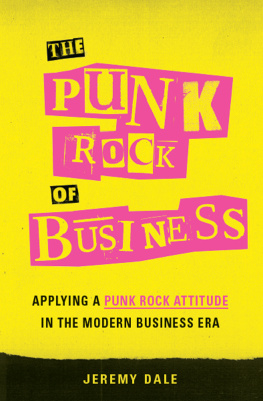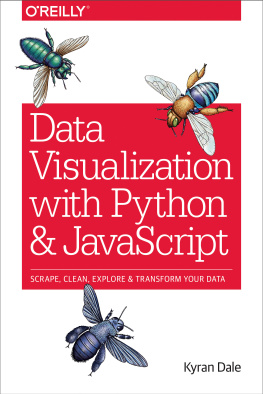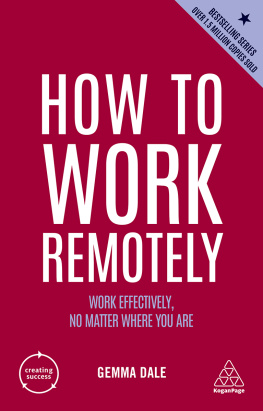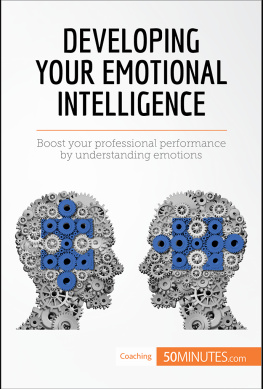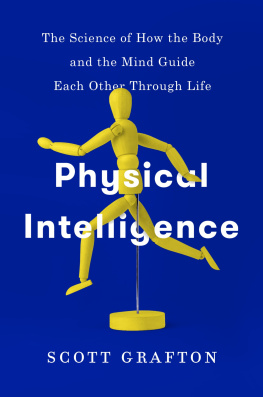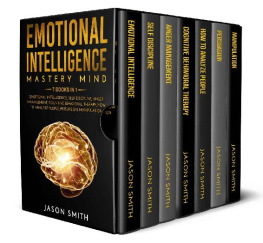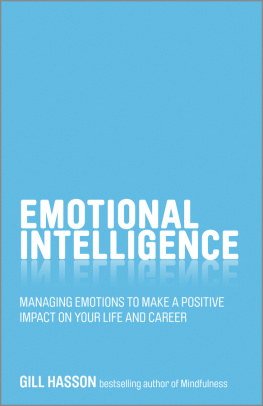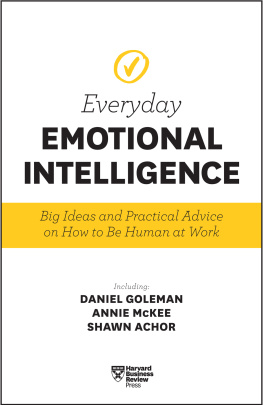PRAISE FOR PHYSICAL INTELLIGENCE:
Physical Intelligence is essential reading for anyone with a body and a mind. It flows effortlessly from beginning to end, like a warm summers breeze, infused with relatable stories, clearly described exercises, life hacks and insights from some of the most prominent and successful people in the arts, media and sport... I wish Id read this book twenty years ago, but Im delighted to have read it now. Dale and Peyton define the field of Physical Intelligence brilliantly and engagingly. A must-read.
Peter Lovatt, BSc, MSc, PhD in psychology and computational neuroscience, reader in the psychology of dance, University of Hertfordshire, and author
This is a wise and generous book. I cant imagine anyone who wouldnt gain by dipping into it (better still, reading it from cover to cover)... In an age where we constantly ignore or abuse our bodys intelligence and value the prizes of the education system over the benefits of learning, this book is an essential counterblast to a better, more integrated way of working and living.
Edward Kemp, director, Royal Academy of Dramatic Art (RADA)
We have all heard a lot about the many benefits of being fit and healthy, but now imagine a world where you can actively influence and leverage your body to optimise your personal and professional wellbeing and success! Scientific research paired with practical experience and easy life hacks makes Physical Intelligence an inspiring read that will literally change the way you walk through life.
Dr Stefanie Teichmann, director, Google EMEA
This book is totally brilliant; a super mix of the intelligent and the practical. Physical Intelligence is as important or more important than any other form of intelligence. Thats hotly debated and not yet really respected and this needs to change.
Wayne McGregor CBE, resident choreographer, Royal Ballet
Success in business requires a lot more than academic intelligence. We need to understand not only interpersonal relationships but also the physical processes that drive behaviours. This very readable and practical book is grounded in the evidence and speaks to us. I have seen these techniques transform individual performance and wellbeing.
John Trundle, CEO, Euroclear UK & Ireland
An extraordinary, up-to-the-minute scientific blueprint for optimising your life, harnessing the natural intelligence of the body. Convincing, thorough, creative, pragmatic, well-organised: a brilliant resource book for professionals, practitioners, clients, families, those in good health, those in poor health. I cant imagine anybody no matter how psychologically skilled or trained who wouldnt learn a huge amount from this.
Roz Carroll, body psychotherapist and author
For Adam and Angus.

For my mother and John.
To enhance your experience as you
read this book, please visit:
www.companiesinmotion.com/physicalintelligence
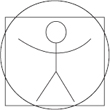
I NTRODUCING P HYSICAL I NTELLIGENCE
Our bodies are amazing examples of intelligent design and function, performing trillions of operations every second. Over 400 neurotransmitters and hormones influence how we think, feel, speak and behave. Physiology drives performance, and yet most of us experience physical reactions, emotions and thoughts without realising that we can transform them.
Physical Intelligence is the active management of our physiology the ability to detect and strategically influence the balance of chemicals in our bodies and brains.
Through the practice of Physical Intelligence techniques, we can increase our strength , flexibility , resilience and endurance , enabling us to build our confidence, make better decisions, rise to more ambitious challenges and live more constructive, fulfilling and tolerant lives. Physical Intelligence may well be the most important intelligence for the twenty-first century.
The evolution of intelligence
The term Physical Intelligence was first used in Frames of Mind: The Theory of Multiple Intelligences by Howard Gardner in 1983. His work established our initial understanding of different intelligences and learning styles. Gardner proposed that bodily-kinaesthetic intelligence (intelligence derived Gardner also identified that intrapersonal intelligence (understanding of self) and interpersonal intelligence (understanding of others) are as important as the type of intelligence typically measured by IQ.
Then, in 1990, the concept of emotional intelligence (EQ or EI) was formulated by two researchers, Peter Salovey and John Mayer, and in 1995 Daniel Goleman published his seminal book Emotional Intelligence . Emotional intelligence is the capacity to be aware of, control and express emotion, and to handle interpersonal relationships with good judgement and empathy in order to achieve personal and professional success for you and others.
Being emotionally intelligent requires a high degree of Physical Intelligence because we experience emotions largely in the body as physiological changes. Emotions are actually strands of neuropeptides chemicals released into the bloodstream that arrive at receptor cells and activate circuits of response that lead to behaviour; sadness, elation, frustration and pride all have a different chemistry and a distinct feeling to them. For example, pride tends to move slowly outwards and upwards from the chest, while frustration often moves quickly inwards and down in a clenching action, forming isolated knots of tension.
Being physically intelligent is more than this, however. The internal state of the body motivates us to walk on the shady side of the street on a hot summers day, to continue to read a book we are enjoying, to reduce social activity when feeling unwell, to avoid contact with someone who isnt smiling, to go into business with someone we trust, and so on. The viscera (the organs in the body), limbs and digits (legs and arms, feet and hands, fingers and toes), senses (hearing, sight, taste, smell and touch) and musculoskeletal system (posture and orientation) are in continuous two-way communication with the insular cortex in the brain, a deep, central part of the brain that connects physiological experiences with thoughts and emotions and vice versa.
Two decades of neuroscientific research shows us, for example, that we are 45 per cent more likely to have a high-quality, innovative idea when we are walking as opposed to when seated; that an open and expansive body posture improves confidence and risk tolerance; and that paced breathing technique increases cognitive function by 62 per cent. Furthermore, there are over 100 studies that show that physical exercise improves intelligence, including IQ levels and task efficiency.
This evidence increasingly points to the fact that our Physical Intelligence not only sits alongside, but underpins our cognitive and emotional performance. Becoming more physically intelligent will help us create businesses and societies where people take responsibility for themselves, are more informed and thoughtful about how to use their capacity, and are equipped with techniques that foster harmony and help them and their organisations achieve and sustain peak performance.
Next page

